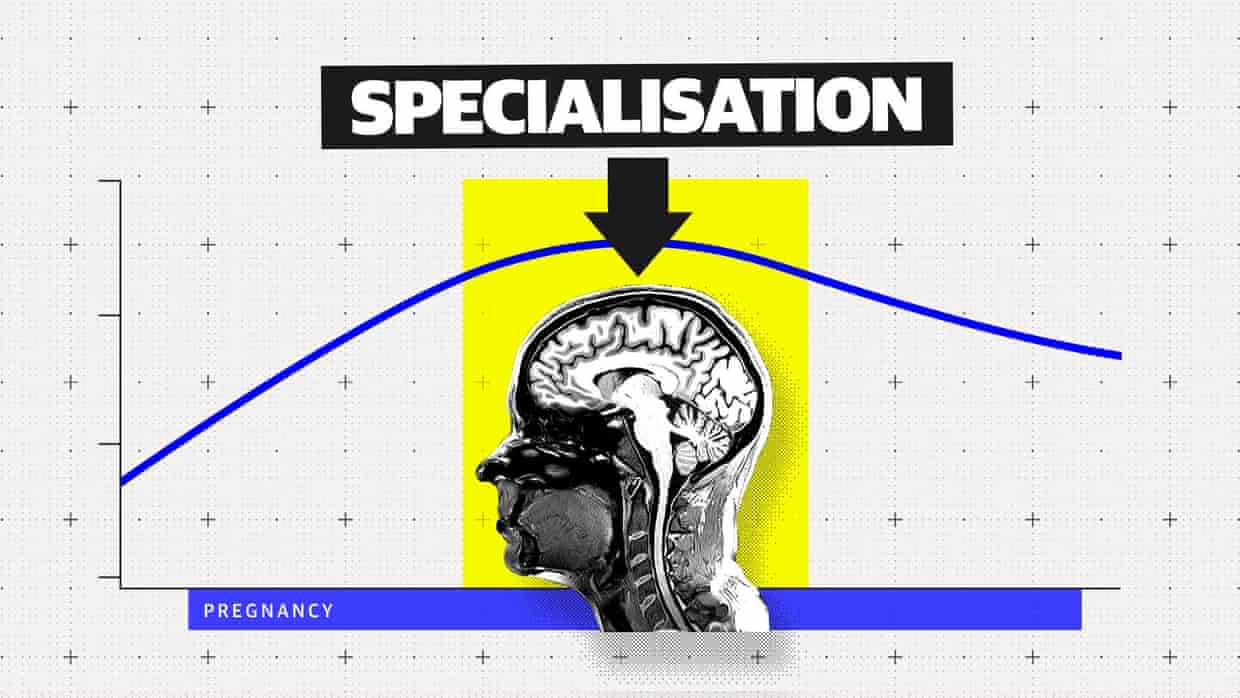Science
New Study Reveals Pregnancy Rewires Brain, Not Weakens It

Research has uncovered that pregnancy fundamentally alters the brain, challenging the conventional notion that it diminishes cognitive function. A recent brain scan study reveals that rather than causing forgetfulness, pregnancy rewires the brain, enhancing certain neural pathways crucial for caregiving. This groundbreaking finding invites a reevaluation of how society perceives “baby brain” and highlights the need for a deeper understanding of women’s health.
Understanding the Study’s Findings
Conducted by researchers at a prominent university, the study utilized advanced brain imaging technology to analyze the neural changes occurring during pregnancy. The findings indicate that a woman’s brain undergoes significant structural changes, particularly in areas associated with empathy and emotional regulation. As noted by lead researcher Neelam Tailor, these modifications are not indicative of a decline in cognitive abilities but rather reflect an adaptation that prepares women for motherhood.
The study emphasizes that the brain’s plasticity during pregnancy is a natural response aimed at enhancing caregiving capacities. Participants who were scanned before, during, and after pregnancy exhibited marked differences in brain connectivity, particularly in regions tied to social and emotional processing. This suggests that pregnancy fosters a profound transformation, allowing new mothers to bond more effectively with their infants.
Implications for Neuroscience and Caregiving
These revelations bear significant implications for both neuroscience and the broader understanding of maternal health. The traditional perspective on “baby brain” often dismisses the cognitive challenges faced by pregnant individuals, framing them as merely forgetful or distracted. Instead, this research points to a more nuanced reality, where the brain’s evolution during this period plays a critical role in shaping a mother’s abilities and instincts.
The findings also raise critical questions about the support systems available to expectant mothers. Understanding that pregnancy can enrich cognitive functions may encourage healthcare providers to offer more comprehensive care and resources tailored to the unique experiences of pregnant individuals. This approach could lead to improved mental health outcomes and better support for new parents navigating the complexities of early motherhood.
As the study continues to gain attention, it underscores the importance of prioritizing research in women’s health and the need to challenge stereotypes that undermine the experiences of pregnant individuals. By reframing the narrative surrounding “baby brain,” society can foster a more supportive environment for mothers and recognize the extraordinary capabilities that emerge during this transformative time.
The research calls for further exploration into how these neurobiological changes affect maternal behavior and child development, paving the way for future studies that could enhance our understanding of pregnancy’s impact on women’s health.
-

 Entertainment2 weeks ago
Entertainment2 weeks agoAndrew Pierce Confirms Departure from ITV’s Good Morning Britain
-

 Health4 months ago
Health4 months agoNeurologist Warns Excessive Use of Supplements Can Harm Brain
-

 Health4 months ago
Health4 months agoFiona Phillips’ Husband Shares Heartfelt Update on Her Alzheimer’s Journey
-

 Science2 months ago
Science2 months agoBrian Cox Addresses Claims of Alien Probe in 3I/ATLAS Discovery
-

 Science2 months ago
Science2 months agoNASA Investigates Unusual Comet 3I/ATLAS; New Findings Emerge
-

 Entertainment1 week ago
Entertainment1 week agoGogglebox Star Helena Worthington Announces Break After Loss
-

 Entertainment1 month ago
Entertainment1 month agoTess Daly Honoured with MBE, Announces Departure from Strictly
-

 Science2 months ago
Science2 months agoScientists Examine 3I/ATLAS: Alien Artifact or Cosmic Oddity?
-

 Entertainment3 months ago
Entertainment3 months agoLewis Cope Addresses Accusations of Dance Training Advantage
-

 Entertainment5 months ago
Entertainment5 months agoKerry Katona Discusses Future Baby Plans and Brian McFadden’s Wedding
-

 Science2 months ago
Science2 months agoNASA Investigates Speedy Object 3I/ATLAS, Sparking Speculation
-

 Entertainment5 months ago
Entertainment5 months agoEmmerdale Faces Tension as Dylan and April’s Lives Hang in the Balance









